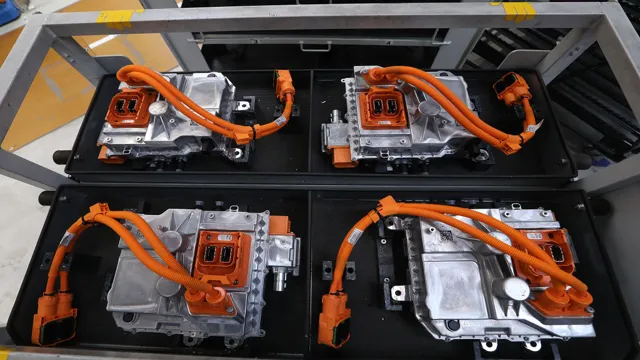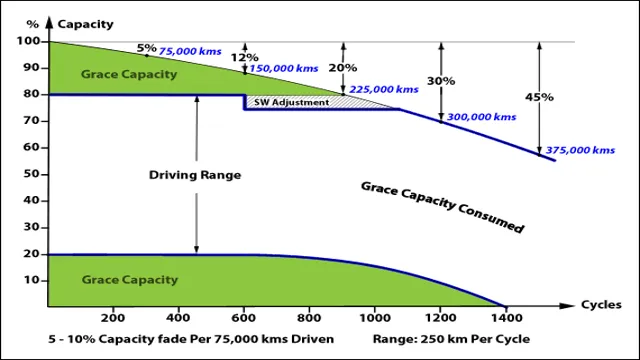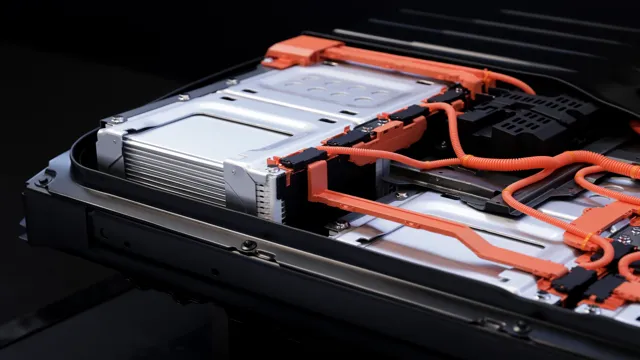Revving up the Truth: How Long Does an Electric Car Battery Really Last?
Looking for an eco-friendly way to travel, electric cars are a popular choice. With zero emissions and lower running costs, they are a smart and eco-conscious alternative to traditional gas-guzzling vehicles. However, one of the most common questions asked about electric cars is, “What is the battery life span?” It’s a valid query to have as the battery is the heart of the electric car, and it’s vital for the vehicle’s smooth operation.
In this blog, we’ll take a closer look at the factors that impact the lifespan of an electric car battery, how long you can expect it to last, and what steps you can take to extend its life. So buckle up and let’s get started!
What is the average life span?
When it comes to electric cars, the average life span of the battery can vary depending on several factors. Typically, electric car batteries can last anywhere between 8 to 10 years or 100,000 to 200,000 miles. However, there are several factors that can contribute to the wear and tear of the battery, such as temperature extremes, battery chemistry, and how often the battery is charged and discharged.
If the battery is frequently charged to 100% or drained completely, it can reduce the overall life span of the battery. On the other hand, regular maintenance and proper use of the battery can prolong its life. It is important to note that when the battery begins to decline you will typically start to see a decrease in range, so it is essential to monitor the health of the battery.
In summary, while the average life span of an electric car battery is around 8 to 10 years, proper maintenance and charging habits can significantly influence its overall life span.
Industry standard: 8 years/100,000 miles
When it comes to the average life span of a car, it can vary greatly depending on several factors. One industry standard is 8 years or 100,000 miles, whichever comes first. However, this doesn’t necessarily mean that a car will completely fail or become unusable after that point.
Regular maintenance, driving habits, and environmental factors can all play a role in how long a car will last. Some cars can last well over 200,000 miles with proper care, while others may have issues much earlier on. It is important to keep up with routine maintenance and address any issues as soon as they arise to help extend the life of your vehicle.
Overall, it’s difficult to pinpoint an exact average life span for a car, as there are so many variables at play. However, maintaining your car regularly and addressing any issues promptly can help ensure it lasts as long as possible.

Factors that affect battery life span
The average life span of a battery depends on several factors, including its chemistry, usage, and storage. Lithium-ion batteries, which are commonly used in smartphones and laptops, can last between 300 to 500 charge cycles before their capacity starts to degrade. On the other hand, lead-acid batteries used in cars and boats can last up to five years with proper care and maintenance.
How often you use and charge your battery, as well as the temperature it’s exposed to, also play a significant role in its life span. In general, frequent deep discharging, exposure to extreme heat or cold, and overcharging can all reduce the battery’s longevity. It’s important to follow manufacturer’s guidelines for usage and storage to ensure your battery lasts as long as possible.
How can you extend your battery life span?
The average life span of an electric car battery varies depending on several factors such as charging habits, temperature, and usage. However, there are steps that you can take to extend the battery’s life span. One key step is to avoid charging the battery to its maximum capacity or draining it completely.
Instead, charge it to 80% and discharge it to 20%. This helps reduce stress on the battery, which can contribute to its degradation over time. Another way to extend the battery’s life span is to avoid exposing it to high temperatures for extended periods, such as leaving it parked under direct sunlight.
Furthermore, driving smoothly and avoiding rapid acceleration and hard braking can also help reduce stress on the battery. Bottom line, taking good care of your electric car battery can greatly increase its life span, and ultimately, save you money in the long run.
Proper charging and maintenance
Extending the life span of your battery requires proper charging and maintenance. One way to do this is to avoid overcharging your battery as this can decrease its lifespan. It is also essential to unplug your charger once your device is fully charged to prevent unnecessary damage.
Furthermore, keeping your battery at room temperature can also help prolong its life span. Exposing your device to extreme temperatures can damage the battery and contribute to its early degradation. To maintain your battery’s performance, it is crucial to keep your device updated with the latest software and limiting your use of background applications.
Keeping your battery clean and free of any debris or moisture can also help extend its lifespan. Following these simple steps can go a long way in ensuring a longer battery life for your device.
Using regenerative braking
Regenerative braking is a technology that allows you to extend the battery life span of an electric vehicle. When you apply the brakes, instead of the energy being lost as heat, it is stored in the battery as electricity. This not only saves you money on fuel costs, but also reduces emissions and wear and tear on the brake pads.
Additionally, regenerative braking can improve the driving experience by providing a smoother and more controlled braking performance. To get the most out of regenerative braking, you should drive in a way that maximizes the amount of time you spend coasting or using the brakes. This means anticipating stops and slowing down gradually, rather than braking suddenly and harshly.
By doing so, you’ll be able to take advantage of this innovative technology and get the most out of your electric vehicle.
Avoiding extreme temperatures and conditions
If you want to extend your battery life span, it’s essential to avoid extreme temperatures and conditions. Batteries don’t perform well in extremely high or low temperatures, and exposing them to such conditions can significantly reduce their lifespan. High temperatures can cause the battery to overheat, shortening its lifespan, while extremely low temperatures can make the battery inactive, causing it to lose its charge.
It’s best to keep your devices in moderate temperatures and avoid exposing them to direct sunlight, which can increase the internal temperature. If you’re traveling to an area with extreme temperatures, try to keep your devices protected with a cover or case to minimize the risk of damage. By taking the necessary precautions and avoiding extreme temperatures and conditions, you can prolong the lifespan of your battery and enjoy longer-lasting use of your devices.
What happens when the battery dies?
As electric vehicles continue to gain popularity, many people are curious about the average lifespan of an electric car battery and what happens when it dies. The lifespan of an electric car battery varies depending on a number of factors, such as the age of the battery, how often it is charged and discharged, and the driving conditions. On average, most electric car batteries are designed to last between 8 and 10 years, with some lasting as long as 15 years.
When an electric car battery dies, it usually needs to be replaced, which can be a costly expense. However, some manufacturers offer warranties or replacement programs for their batteries. Additionally, some companies are developing new technologies to extend the life of electric car batteries, such as better cooling systems and battery management software.
Overall, the lifespan of an electric car battery is an important factor to consider when purchasing an electric vehicle, but there are options available to prolong its life and replace it when necessary.
Recycling and disposal of electric car batteries
Electric car batteries are a technological marvel, but like all things, they will eventually lose their charge and need to be disposed of. Fortunately, recycling and disposal options for electric car batteries are becoming more accessible and eco-friendly as the demand for renewable energy sources continues to grow. When an electric car battery dies, it can be recycled through various processes.
The first step is to safely remove the battery from the vehicle and transport it to a recycling facility. Here, the battery is dismantled, and the various components – such as cobalt, nickel, and manganese – are extracted and processed into new battery cells. This process helps to reduce waste and conserve natural resources, while also reducing the need for new battery manufacturing.
Furthermore, recycling batteries is much more eco-friendly than just disposing of them in landfills, as they can potentially leak toxic materials into the soil and groundwater. So, the next time your electric car battery dies, rest assured that it will be recycled and put to good use in a new battery.
Potential for second life in energy storage systems
When batteries in energy storage systems come to the end of their useful lives, there is still potential for a “second life” before they are ultimately recycled. In fact, some companies are already experimenting with repurposing old batteries for new applications. For example, Tesla is exploring the possibility of using its old electric vehicle batteries in energy storage systems for homes and businesses.
While these batteries may no longer have enough capacity to power a car, they can still hold enough energy to be useful in stationary applications. This could help reduce the demand for new batteries and extend the overall lifespan of these energy storage systems. Additionally, repurposing old batteries could also help reduce waste and further advance the circular economy.
As technology continues to advance, it will be interesting to see what other innovative uses emerge for these “second-life” batteries.
Conclusion
In conclusion, the average life span of an electric car battery is a topic that requires a bit of a shocking truth. While it may vary depending on the make and model of the vehicle, the typical range is between 5-10 years. However, it’s important to remember that just like our own energy levels, factors such as usage patterns and charging habits can greatly impact the longevity of the battery.
So, whether you’re cruising in a Tesla or a Nissan Leaf, it’s always important to keep an eye on your battery life and make sure to charge up in a timely and efficient manner. After all, with a little extra care, you can ensure that your electric car battery will continue to power your rides for many miles down the road!”
FAQs
What is the average life span of an electric car battery?
The average life span of an electric car battery is around 8 to 10 years.
How often do I need to replace my electric car battery?
It depends on various factors such as driving habits, charging patterns, and environmental conditions. However, on average, an electric car battery needs replacement after 100,000 miles.
How much does it cost to replace an electric car battery?
The cost of an electric car battery replacement varies depending on the make and model of the vehicle. On average, it can cost between $5,000 to $15,000.
Can I extend the life span of my electric car battery?
Yes, you can extend the life span of your electric car battery by following certain practices such as avoiding extreme temperatures, avoiding frequent fast charges, and maintaining an adequate charge level.





